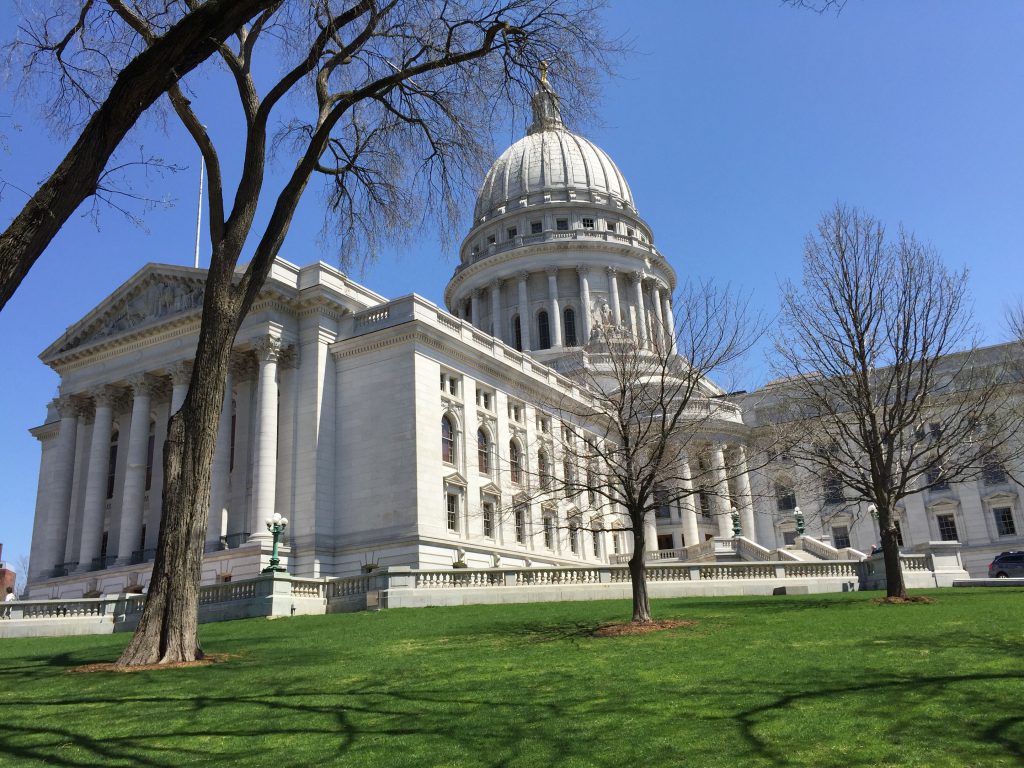Legislators Advance Unemployment Fix, COVID-19 Deal
But Republicans won’t pay for new computer system Evers says is needed.
After scuttling a compromise on their last COVID-19 response bill and snubbing a call by Gov. Tony Evers to kickstart an update of Wisconsin’s creaking unemployment insurance computer system, legislative Republicans made a partial gesture to address both problems Wednesday.
The Legislature’s Joint Finance Committee (JFC) rewrote the governor’s proposal to replace the state’s unemployment insurance technology — then tacked on to it provisions that were in previous COVID-19 legislation that Evers said he would sign.
If the revised legislation becomes law, the Department of Workforce Development (DWD) will be authorized to take the next step in upgrading a computer system that the Evers administration has blamed for the much of the backlog in claims for unemployment insurance (UI) amid a crush of claims brought on by the COVID-19 pandemic.
“Wisconsin needs a fully modernized system to prevent unnecessary delays in the future,” DWD’s secretary-designee, Amy Pechacek, told the committee.
The Republican maneuver to act on the governor’s UI modernization bill — after ignoring it for a month except to claim it was unnecessary — was a surprise sequel to the collapse almost two weeks ago of the Legislature’s first COVID-19 legislation in eight months.
The JFC legislation revives elements of a compromise version of the COVID bill that the Senate and Evers reached in early January. Chief among those is a provision that business, hospital and nursing home lobbyists had clamored for: protection from lawsuits for exposing people to the coronavirus responsible for COVID-19. After Senate Republicans removed language that would have extended that protection to businesses that disregarded public health orders, Evers had agreed to sign their version.
The new bill also resuscitates temporary enhancements to the unemployment insurance system from that compromise bill. Those provisions had been stranded when the Assembly scrapped the compromise, injecting several partisan measures that led Evers to veto the legislation.
The liability immunity language and the temporary UI modifications were then attached to UI technology upgrade legislation that had been drafted for the governor. The draft bill was for a special session that, until Wednesday, Republicans lawmakers had spurned.
“This is how we can accomplish the governor’s goal to upgrade the IT system,” Born added. “This is the compromise on how to get it done if he really wants to get it done.”
Even as the Republican lawmakers moved the UI tech upgrade bill along, they kept a tight fist on the money to fund it.
Evers’ original draft had sought $5.3 million to start with, along with $74 million to cover the first major round of expenses associated with the project. The GOP rewrite doesn’t spend any money.
The bill authorizes DWD to issue a request for proposal (RFP) to get the computer upgrade project started. It also prescribes various possible funding sources and instructs DWD to rely first on available federal government funds before tapping the state treasury. And it requires the Evers administration to come back to the JFC if it needs more state funding.
Democrats on the committee offered an amendment that would have replicated the funding in Evers’ original draft. Republicans rejected that, however.
“It seems like it’s putting the cart before the horse when we put $80 million out there, and then [issue] an RFP,” said Born.
Democrats said that delaying funding will delay the work.
“By not funding it right now .. there’s more hoops that [DWD] will have to jump through in order to secure some funding,” Sen. Jon Erpenbach (D-West Point) told the Wisconsin Examiner after the JFC meeting.
Rep. Evan Goyke (D-Milwaukee) tweeted:
“Today, Democrats advanced a proposal to fund and begin modernizing our Unemployment Insurance IT systems. For all the press releases and comments the GOP have made against the Governor, today they voted down an immediate solution to the problem.”
The three UI-related provisions from the compromise COVID-19 legislation that are back in the new bill include a renewed temporary waiver of the state’s one-week waiting period for jobless people to file new unemployment claims.
Suspending that waiting period was a condition for the state to qualify for supplemental federal unemployment insurance payments. The Assembly version of the COVID-19 bill included language that would have continued the waiting period’s suspension; with Evers’ veto, the waiting period returned, costing the state an estimated $1.3 million a week.
Last year, Wisconsin lost $25 million in federal unemployment relief because Republican leaders in the Legislature delayed convening until mid-April to pass the state’s only COVID-19 response legislation, which first suspended the waiting period.
The legislation ends the waiting period’s suspension for applicants after March 14. The committee voted down a proposal by Democrats that would automatically suspend the waiting period as long as the federal requirement continues.
Other UI-related elements in the bill continue provisions first enacted in April that support unemployment work-share programs and avoid charging individual employers whose workers collect UI.
Reprinted with permission of Wisconsin Examiner.






















